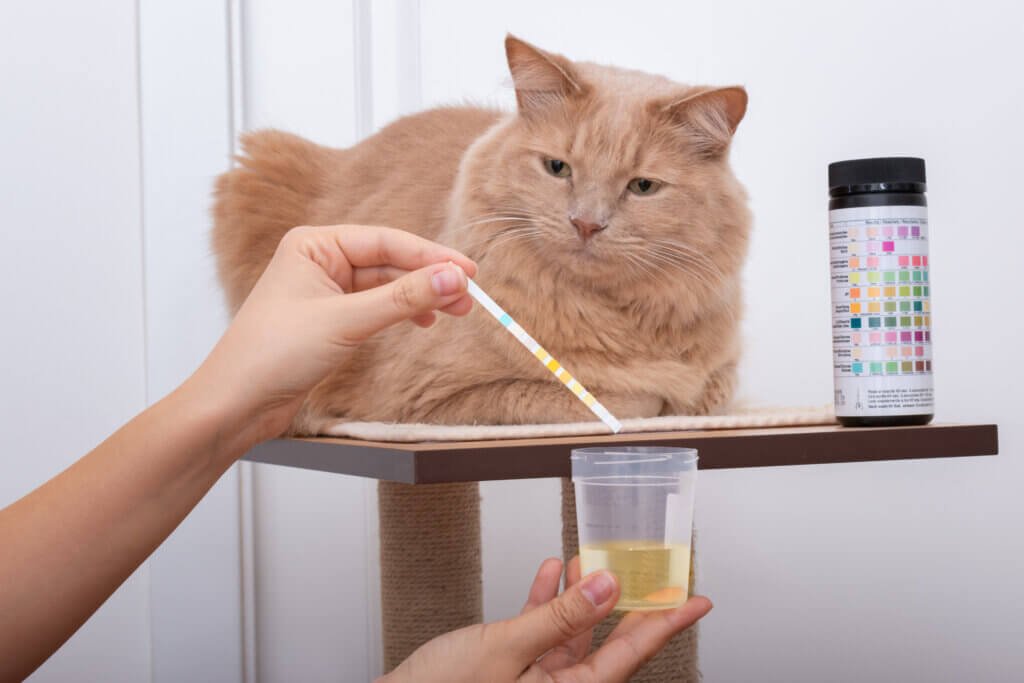Cats can sometimes face some health issues just like we do. One of the most common health issues is a urinary tract infection. If you don’t know how to treat urinary tract infections for your furry friend, then you’re on the right page, as you can get all the details here.
Basics about urinary tract infection in cats
Urinary Tract infection is a challenging condition that can impact your cat’s urinary system. This system includes the bladder, kidneys, and the urethra. The infection occurs when any harmful bacteria from the outside sneaks their way into your cat’s urinary system and causes issues.

Symptoms Of Urinary Tract Infection In Cats
Detecting a urinary tract infection in your cat can be challenging because they cannot talk to you about the discomfort. But there are some signs that you should look out for.
- If your cat starts going with the litter box more than usual, it can be a sign that it is UTI.
- At the same time, if you see that your cat is struggling or in pain while urinating, it can also be a cause for concern for
- If you notice any blood in your cat’s urine, it is undoubtedly a red flag.
- Cats are basically very clean, and if they suddenly start urinating outside the litter box, it can be because of a urinary tract infection.
- Excessive licking in the genital area can also indicate discomfort
- If your urine cat has a foul smell, it can be a sign of urinary tract infection.
How Common Is UTI In Cats
UTI is common in cats. The impact of cats of any age, even though they tend to be more frequent in older cats, female cats are more susceptible to UTIs as compared to male cats.
Causes Of UTI In Cats
- Bacteria can enter the urinary tract system of your cat, causing infection. This is one of the most common causes of UTIs in cats.
- Tiny crystals can form in your cat’s urine, creating an environment where bacteria can easily thrive. It leads to infection.
- Sometimes some foreign objects, including stones or debris, can block the urinary tract which can lead to infection.
- Conditions that obstruct urine flow, like bladder stones, can contribute to UTI. Some underlying health issues, including diabetes or kidney ailments, can increase the risk of UTI.
Diagnosing UTI In Your Cat
To check if your cat has a UTI or not, your doctor will use different methods.
- Urine analysis includes analyzing a urine sample for infection signs like bacteria blood or abnormal pH levels.
- The veterinarian might also recommend a blood test as it can reveal if there are any underlying health conditions contributing to the UTI.
- X-rays or ultrasounds can help you identify any physical issues present in the urinary tract.
Treatment Of UTI In Cats
The good news is that UTI in cats is entirely treatable.

- The veterinarian might prescribe some antibiotics to kill the bacteria causing the infection. It is essential to follow your veterinarian’s advice for the complete course of antibiotics.
- Doctors might recommend you to keep your cat hydrated. It is very important to flush out the infection and prevent any future infection.
- If your cat is in pain, your veterinarian might prescribe some pain relief medicines. These medicines will make them more comfortable during the healing process.
- In some cases, the veterinarian might recommend a special diet to dissolve any crystals or stones which would be causing the infection.
Prevention of UTIs
Preventing UTIs is way better than treating them. Here is how you can keep your cat’s urinary system healthy.
- Cats could be more tricky about the litter boxes. Regular cleaning encourages them to use it and minimizes the risk of infection.
- You need to feed your cats with high-quality cat food. It will help in maintaining a healthy urinary tract.
- You must ensure that your cat drinks fresh water all the time. Some cats would prefer running water, so a cat water fountain can also help.
- Taking your cat for regular checkups allows your veterinarian to catch and treat any issues in time.
Complications Of UTIs In Cats
UTIs in your cat should not be taken lightly, as they can lead to severe complications.
- UTIs can, at times, lead to the formation of crystals or stones in the urinary tract. These obstructions can block the urine flow, causing a lot of pain and potentially life-threatening complications. It is completely common in male cats because of their narrow urethra.
- Chronic or recurrent urinary tract infections can damage your cat’s kidneys. The kidneys might lose their ability to filter waste and regulate important body functions. It can lead to kidney failure in short. This is a serious and irreversible conditions that can be deadly.
- If a UTI spreads beyond the urinary tract in the bloodstream it can lead to septicemia, which is a deadly infection throughout your cat’s body. Some of the symptoms include fever, lethargy, and a rapid heart rate.
Wrap Up
A UTI in your beloved furry friend can be a source of worry, but with instant diagnosis and proper treatment, most cats can recover completely. You just need to remember to keep an eye out for all the symptoms as discussed above and seek veterinarian care if you suspect a sign of urinary tract infection. Furthermore, you should follow all the preventive measures like maintaining a clean litter box and providing A balanced diet. You should consult with your doctor for the best advice on your cat’s specific needs or conditions.








